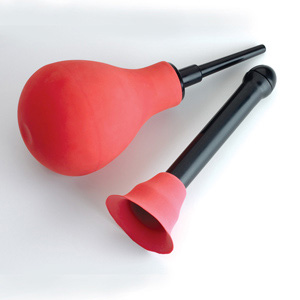Not all vaginal discharge is bad. You only have to start worrying when it changes colour or develops an odour.
by The Editors | editor@themetrognome.in
It’s annoying and sometimes uncomfortable, but there’s no getting away from it – vaginal discharge is a necessary evil in every woman’s life.
Vaginal discharge serves a primary function: it is secreted as a ‘clean up’ mechanism for a woman’s reproductive system, especially in the days immediately after the end of the monthly menstrual cycle. Its function is to rid the uterine and vaginal tract clear of old cells and fluid, and it is nature’s way of keeping the uterus, cervix and vagina clean.
How much discharge is normal?
 Says gynaecologist Dr Prachi Kakkar, “The amount of discharge varies from woman to woman, so what’s normal for one may be abnormal for another. Besides, the amount and intensity varies on other factors such as stress, an infection, an illness, use of antibiotics, ageing and pregnancy.”
Says gynaecologist Dr Prachi Kakkar, “The amount of discharge varies from woman to woman, so what’s normal for one may be abnormal for another. Besides, the amount and intensity varies on other factors such as stress, an infection, an illness, use of antibiotics, ageing and pregnancy.”
While some women can experience a discharge daily, not counting the days they have a period, others can have occasional discharge. “As long as the discharge is transparent or slightly whitish, without an odour and it is not thick, the discharge is considered normal,” says Dr Kakkar.
When you should worry
The first sign of some distress in the uterine tract is normally exhibited through the vaginal discharge, says Dr Kirti Soman, Nagpur-based gynaecologist. “Whether a localised infection or a larger issue like a fibroid, the vaginal discharge will give the first indication of the condition,” Dr Soman says. “You might experience a sudden, heavy discharge. On the other hand, you might experience extreme dryness in the vaginal area with no discharge at all. Either way, it should sound an alarm bell.”
Additionally, the discharge may change appearance, which is when you should be concerned. “If it changes colour – becomes yellow or greenish or clotted white, like curd – and if it develops a strong fishy or unpleasant smell, then it means you have developed an infection. It may be a yeast infection or vaginosis or even a sexually-transmitted disease like gonorrhoea. The good news is that these infections can be treated with oral medication and if doctor’s orders are strictly followed, they can clear up in a few weeks,” Dr Soman explains.
How will you know if you’ve got a problem?
– If you experience sudden heavy discharge, try and chart for how long you’ve been suffering it. Ditto for sudden dryness and lack of discharge for days, if you’ve previously had  regular discharge. Ideally, you should not wait for longer than a week to see a doctor.
regular discharge. Ideally, you should not wait for longer than a week to see a doctor.
– A change of colour and smell of the discharge is an indication of an infection. An infection exists if the discharge is yellow, greenish, grey or curdy in appearance, and if it smells bad.
– You may get an infection if you have sexual intercourse with a person infected with chlamydia or gonorrhoea.
– If you’re experiencing pain during intercourse or if the vagina is swollen/dry, you may have an infection in the cervix.
– Do not try to treat yourself at home using douches (in pic on right) or vaginal washes purchased off the market without a doctor’s advice. There is a high chance of you killing the healthy cells in your system if you use a douche, or certain cleansing solutions in your vaginal area.
– Some infections recur, so if you’ve been treated once, don’t assume you won’t ever need treatment again. Consult your doctor when making lifestyle, food and medication choices.
(Pictures courtesy www.didibahini.com, www.ladycarehealth.com, www.women-health-info.com)
